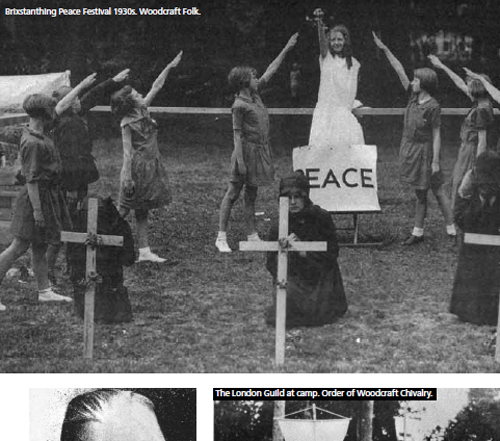Woodcraft Youth: the interwar alternative to scouting
Historian article

‘We should recognize once and for all', exclaimed ‘White Fox', a rebel London Scout leader, ‘that the ideas and ideals which may have fitted fairly well into the social fabric of 1908 [year Scouts formed] may be very ill-fitting "reach-medowns" in 1920'. During the First World War, the enthusiastic support given to the military authorities by Robert Baden-Powell, founder of the Boy Scouts, had disenchanted several of his more internationalist, socialist, or pacifist Scoutmasters.
Subsequently, reacting against orthodox Scouting's assumed imperialist and militarist associations, outdoor alternatives combining an exotic naturalism with varieties of socialist, pacifist, Quaker, and co-operative ideas, began to emerge. Each in turn will be considered here in relation to their origins, founders, and in terms of what they tried to put in place of the more established Scout movement's supposedly outdated and certainly much less pantheistic values.
Hence the distinctive English woodcraft groups seen hiking and camping in places like Epping Forest and on Wimbledon Common during the 1920s and 1930s were all, to some degree, experimental offshoots of the more sober, patriotic, and conventional Scout and Guide movements...
This resource is FREE for Historian HA Members.
Non HA Members can get instant access for £2.75

